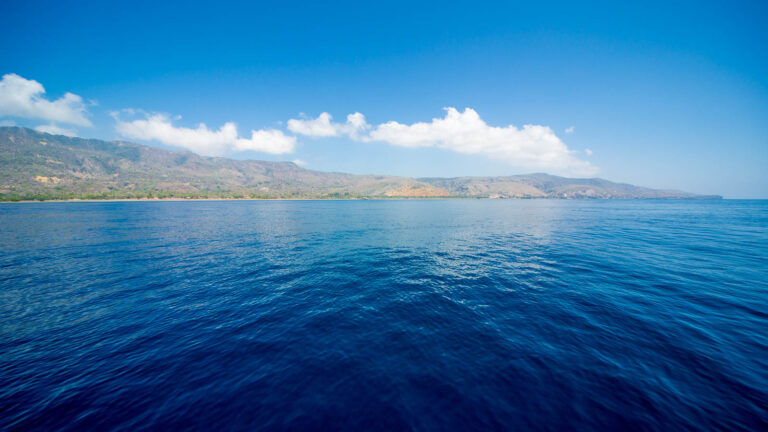At the crossroads of Asia and the Pacific lies Asia’s newest country, a remote and mountainous island whose name translates as ‘East of East’. Fringed with rich coral reefs and dense mangrove forests, local mythology recounts that Timor-Leste was borne from the body of a giant crocodile that carried a small boy – the ancestor of the Timorese population – across the ocean from the archipelagos further west.
Legend has it that the crocodile’s ridged back became the mountains and his scales the hills of Timor. Today’s Timorese continue to revere the crocodile, believing in a close bond between man and his saltwater crocodile friend.
Lying between its giant neighbours Australia and Indonesia, and bathed by the deep waters of the Banda and Timor seas, Timor-Leste sits at the heart of the Coral Triangle; an ocean region home to the highest diversity of marine life on earth with 76% of the world’s coral species, six of the world’s seven marine turtle species, and at least 2,228 reef fish species described to date. The island’s spectacular marine diversity and productivity have given the Timorese people a longstanding relationship with the ocean, with archaeological evidence dating back at least 42,000 years suggesting that Timor-Leste may be the crucible of humanity’s tradition of fishing at sea.
Perhaps on account of this ancient seafaring tradition, environmental sustainability is deeply enshrined in Timor-Leste’s culture. Traditional ceremonies such as Tara Bandu show that the Timorese do not dissociate environmental conservation from stability and sustainability.
Yet today’s Timorese face new challenges to the future of the fishing traditions that have sustained coastal communities here for tens of millennia. Climate change, globalization, overfishing and destructive fishing techniques are all threatening the delicate balance of the fragile marine ecosystems upon which Timor-Leste’s coastal communities depend.
There is now a critical need to help build the island’s capacity for effective marine management. Responding to this, Blue Ventures is embarking on a new country programme in Timor-Leste, working with coastal communities, government agencies, and conservation and development organisations to help develop new approaches to engaging coastal communities in marine conservation.
The cornerstone of our work will be the adaptation of our existing marine conservation volunteer programme to this new country, to help develop village-level economic incentives for communities to support conservation. Volunteers will also help collect critical data on the status of marine resources, in particular threatened seagrass beds, which are home to numerous vulnerable species, including dugongs. We’re beginning to build our team in Timor-Leste and look forward to welcoming expedition volunteers to this incredible country in early 2016.
This project is executed by the the Mohamed bin Zayed Species Conservation Fund, with financing from the GEF, implementation support by UNEP and technical support from the CMS Dugong MoU Secretariat.























